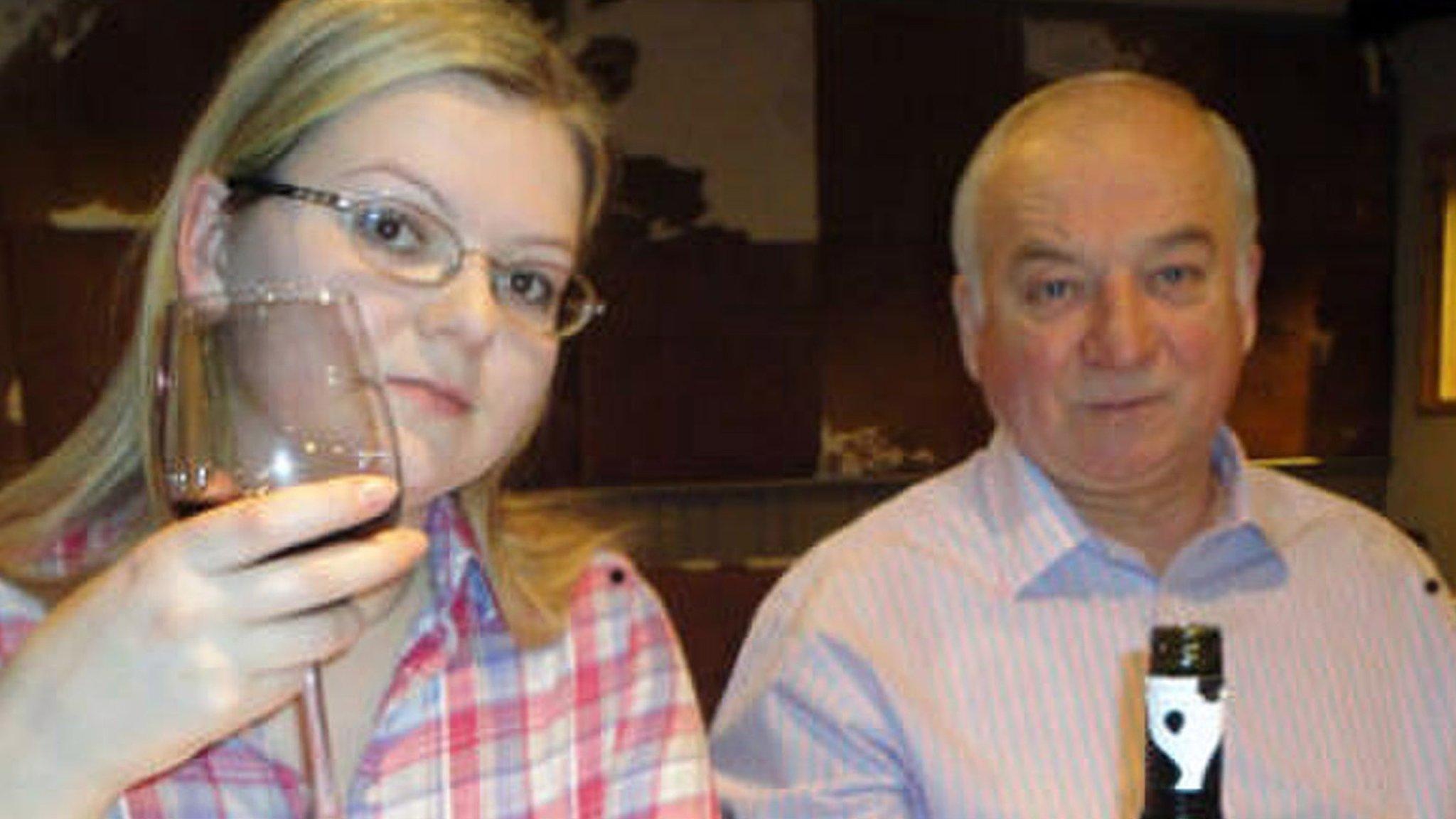The Salisbury Poisonings: TV drama revisits Novichok attack 'horror'
- Published
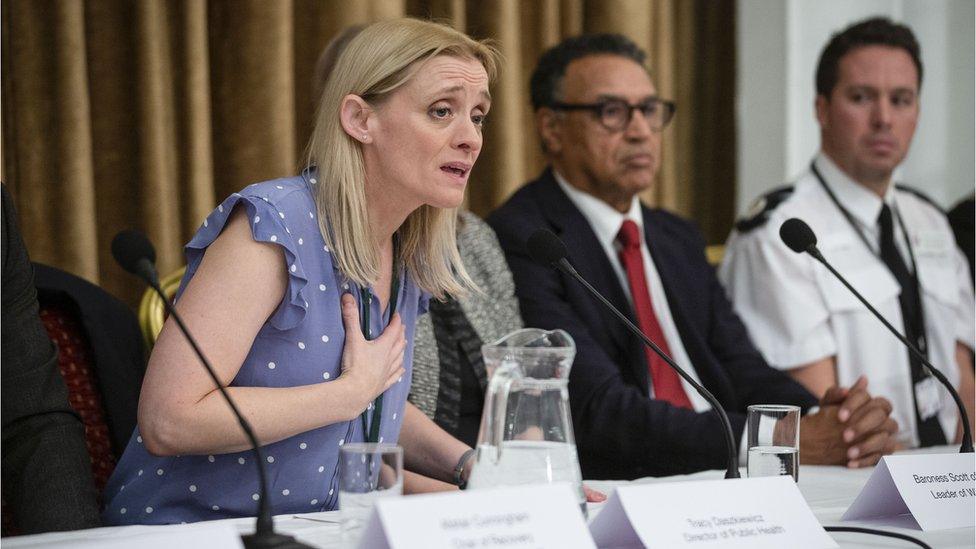
The drama centres on Wiltshire's director of public health Tracy Daszkiewicz, played by Anne-Marie Duff
Scenes of streets in lockdown, health officials wearing PPE, dangerously contaminated surfaces and a battle with an invisible enemy are set to feature in a new TV drama from Sunday.
But the events depicted in BBC One's The Salisbury Poisonings took place two years before the coronavirus pandemic began.
The three-part series is based on the events of March 2018, when the Wiltshire cathedral city faced one of the biggest threats to UK public health in recent years.
Sergei Skripal and his daughter Yulia were found slumped and foaming at the mouth on a city centre bench, having been poisoned with the deadly nerve agent Novichok.
The government would later conclude it was an assassination attempt by two agents of Russian intelligence service the GRU.
It's an extraordinary story, which Salisbury is still recovering from. But the dramatisation isn't some kind of James Bond-style spy thriller.
The Skripals are only seen briefly at the beginning of the first episode, and the Russian suspects are not shown at all. Instead, it focuses on the response of the local community and health officials.

The series opens with Sergei and Yulia Skripal being found on a bench
"We were drawn to the stories of the people who had to clean up this mess, rather than the people who made it," says Declan Lawn, who co-wrote the script with Adam Patterson.
"It's about ordinary people who have to pick up the pieces. We thought that's where the drama was, where the emotion was. We didn't want to do the obvious thing, which would have probably been an espionage drama.
"But I hope that what we've done is show that there are people out there who take a bullet for us, they are a hidden network of people who keep this society together."
Cautious approach
At the centre of the The Salisbury Poisonings is Tracy Daszkiewicz (played by Anne-Marie Duff), the director of public health for Wiltshire.
She had been appointed just three months before the Skripals were poisoned, but had worked for Wiltshire Council for more than a decade.
In reality, Daszkiewicz played an integral role of the response to the poisoning, but avoided media exposure - in part to not betray the trust of local residents.
Together with the police, she used CCTV to work meticulously to find out who the Skripals might have come into contact with on the day they were poisoned, and took a cautious approach to protecting the public.
Dominic Casciani's 2018 news report showed the locations where Sergei Skripal spent Sunday 4 March with his daughter
"To us now, it seems perfectly logical," says Duff, referring to how common certain health measures have become since coronavirus. "Of course we close our doors and windows and wear masks, but at the time, it seemed like she was being thoroughly extreme and overreacting.
"But what's glorious about Tracy is her background. Her background is in social work, she's very grassroots, she comes at things from a tactile level. So she'll ask, 'What do we know to be true? What do we know if someone has food poisoning? What if the water source becomes contaminated?'"
Both Skripals survived the attack, as did Det Sgt Nick Bailey, a police officer who was one of the first to respond to the attack.
But a local woman, Dawn Sturgess, died after coming into contact with the substance several weeks after the initial attack.
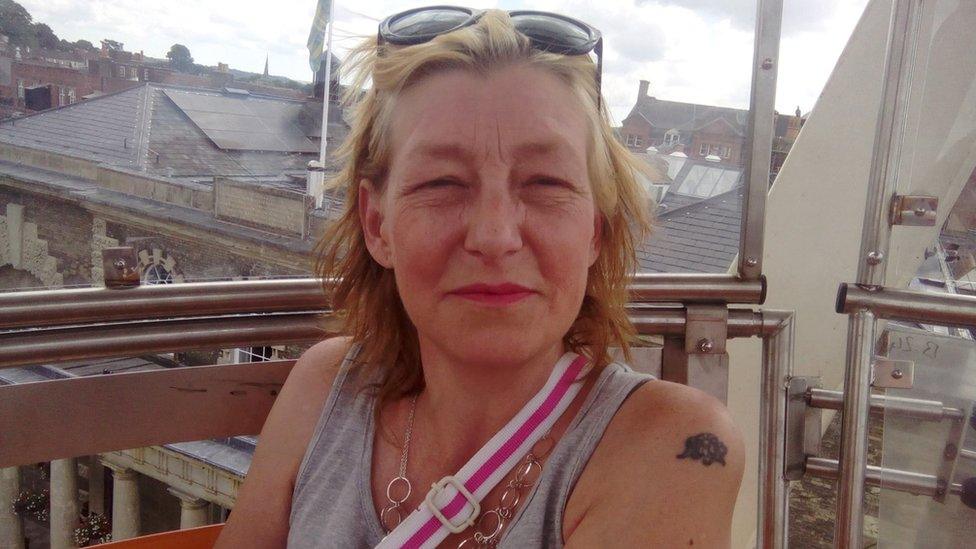
Dawn Sturgess is the only person to have died as a result of the attack
On 30 June, Ms Sturgess and her partner Charlie Rowley became unwell at a house in Amesbury, eight miles from Salisbury, after spraying a bottle of perfume containing Novichok on her wrists.
The perfume had been given to her as a gift from Rowley, who had found it in a charity shop bin, external. He said it had been disguised as a well-known perfume brand and was in sealed packaging.
Actress MyAnna Buring, who plays Ms Sturgess, says the portrayal of her in the Salisbury Poisonings may surprise those who remember media coverage of her death in 2018.
"A lot of us remember a lot of news outlets describing her as homeless and a drug addict, and in doing so sort of dismissed her death as inevitable because of her life choices," Buring recalls.
"And that simply was not true. She was not homeless, she was not a drug addict, she was a woman who had experienced mental health issues, and knocks in life, which I think all of us can relate to. She did struggle with alcohol but she was working really hard to turn her life around. She had a loving family, partner, friends."
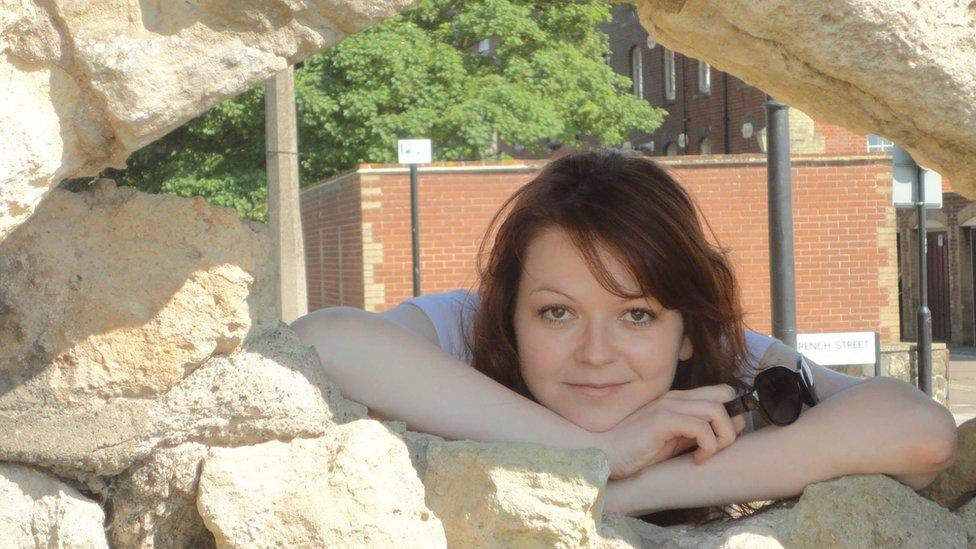
Yulia Skripal, from Moscow, was found on the bench alongside her father
It can often take a long time for a TV drama or film to be made about a real life event, but The Salisbury Poisonings has been turned around relatively quickly. Indeed, the series was only completed in the last few months.
Director Saul Dibb explains: "We filmed our last sequence the week before lockdown [on 23 March], and after that we finished it remotely. It just had this creeping sense of resonance as coronavirus took over us."
The drama was filmed mainly in Newport, south Wales, plus Bristol and other parts of the south-west, rather than in Salisbury itself. Duff has said, external producers were "very sensitive" about where to recreate certain events.
Nonetheless, there has been some criticism of the drama, including from DS Bailey's parents, who said in a letter to a local newspaper last year, external that the series was "inappropriately premature". DS Bailey himself, however, did not object, and has met the actor who plays him, Rafe Spall.
Like ITV's recent drama Quiz, the BBC has decided to broadcast the three episodes on consecutive nights, rather than risk losing momentum (and audience interest) by making them weekly.
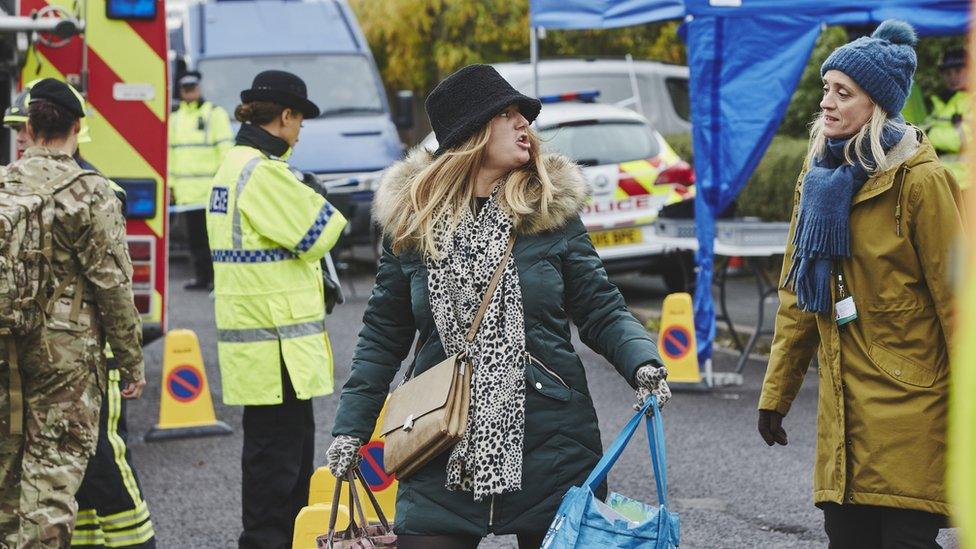
As a drama it "works as a narrative on a number of different levels", says Dibb. "It's partly a domestic drama, partly a thriller, and partly a very prescient virus horror, of this invisible enemy that can kill lots of people.
"So it was about finding ways to harness all of those things to be able to tell a story which I think all of us felt had the potential to be more than a straightforward docu-drama.
"And it's extraordinarily surreal, this weird thing happening in the middle of this small British cathedral city, that even if you were directly poisoned or not, everybody - it seemed to me - became contaminated by this poison."

The Salisbury Poisonings starts on BBC One at 21:00 BST on Sunday 14 June.
- Published9 June 2020
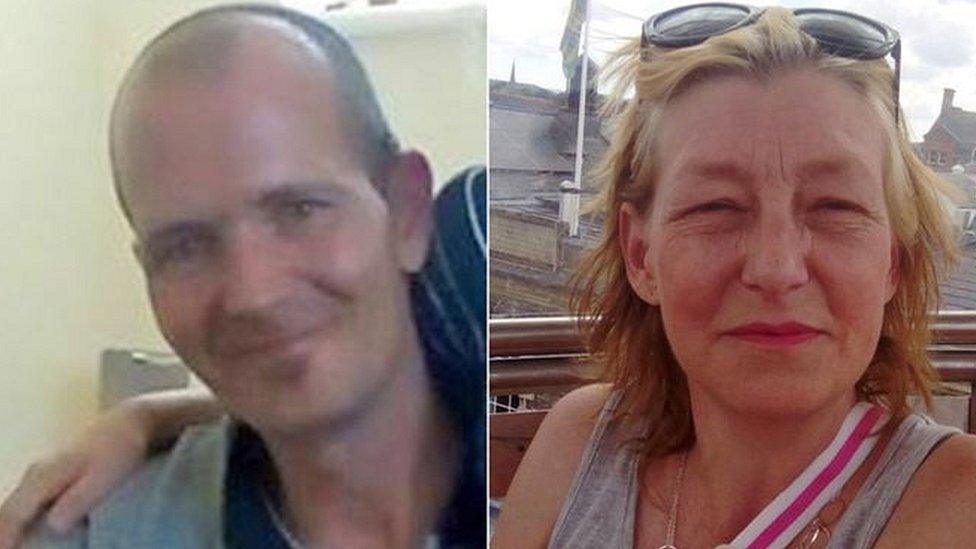
- Published8 October 2018
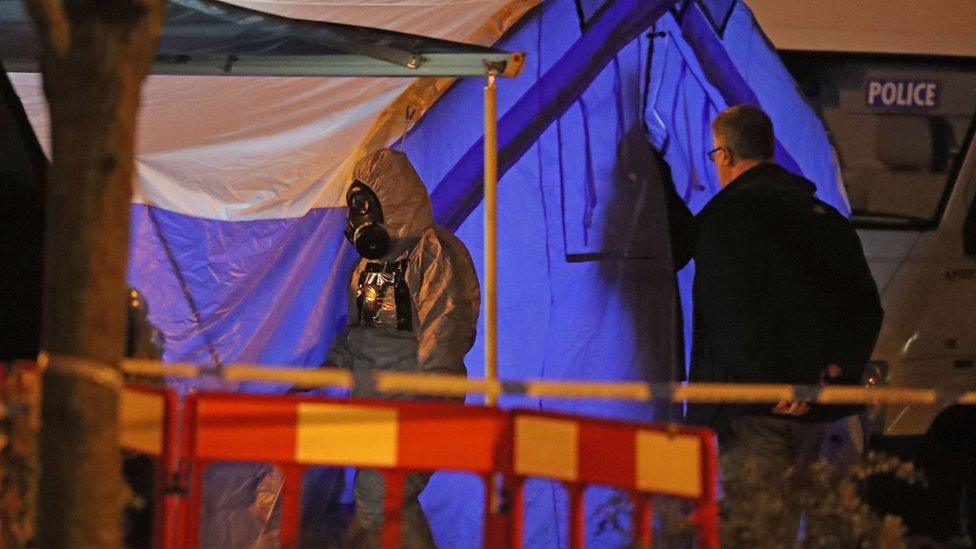
- Published27 September 2018
